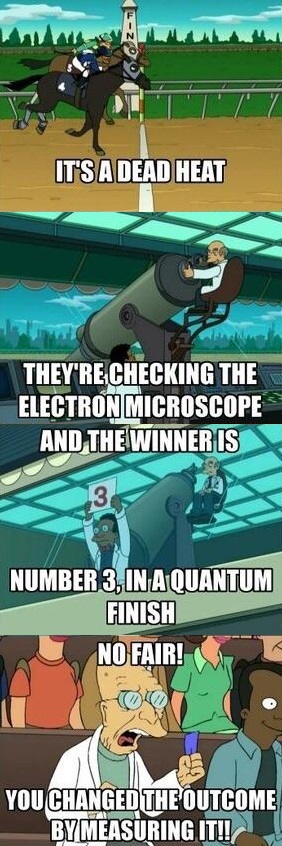Make Your Point > Archived Issues > OBSERVER EFFECT
Send Make Your Point issues straight to your inbox.
(Source)
In The Principles of Quantum Mechanics (1930), Paul Dirac wrote:
Part of speech:
I'm not a scientist, so I won't be using this term's specific meaning in physics—or making any recommendations about how you should! Instead, I'll focus on its use in general conversation.
"The poll unintentionally captured what might be termed a polling observer effect... Sure, polls might show that Republicans support halting Muslim immigration, but what if the question had never been polled to begin with?"
Explain the meaning of "observer effect" without saying "observation bias" or "affecting something by observing it."
In the Chicago Tribune, Ben Bowman brought up the observer effect when commenting about how outlandish reality television has gotten:
Try to spend 20 seconds or more on the game below. Don’t skip straight to the review—first, let your working memory empty out.
1.
One way to potentially eliminate the OBSERVER EFFECT could be to
|


